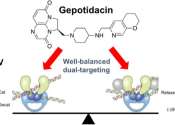A high-efficiency photocatalyst for converting carbon dioxide into environmentally friendly energy using sunlight
DGIST Professor In Su-il's research team has developed a high-efficiency photocatalyst that utilizes sunlight to convert carbon dioxide (CO2), the primary cause of global warming, into methane (CH4) fuel. The research team ...









